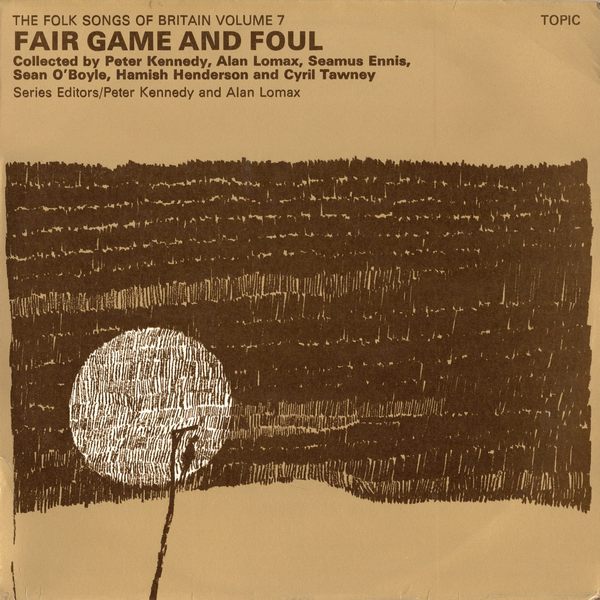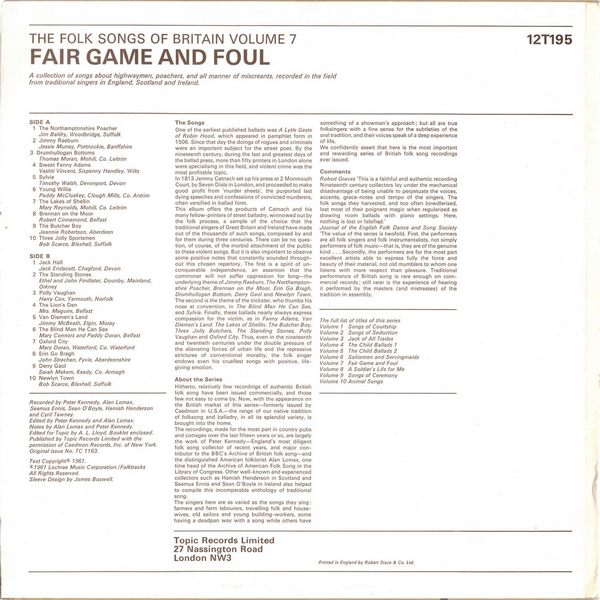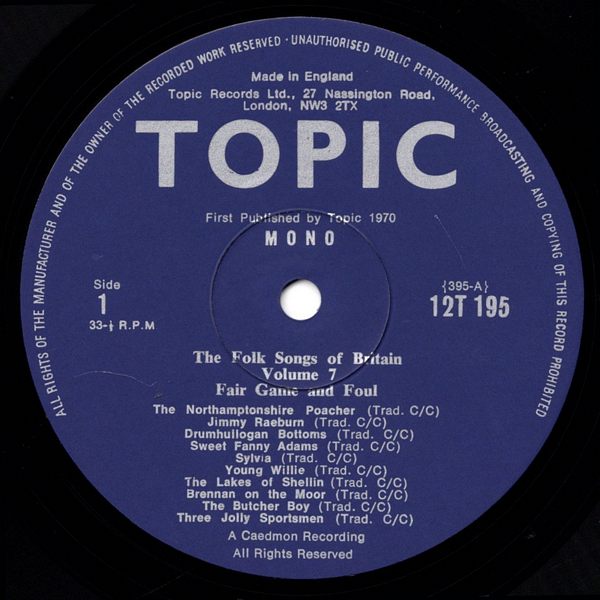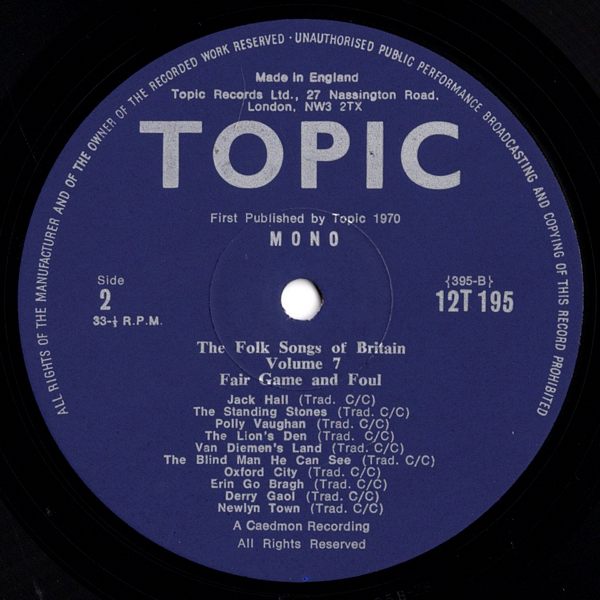
 |


 |
| more images |
A collection of songs about highwaymen, poachers, and all manner of miscreants, recorded in the field from traditional singers in England, Scotland and Ireland.
The Songs
One of the earliest published ballads was A Lytle Geste of Robin Hood, which appeared in pamphlet form in 1506. Since that day the doings of rogues and criminals were an important subject for the street poet. By the nineteenth century, during the last and greatest days of the ballad press, more than fifty printers in London alone were specialising in this field, and violent crime was the most profitable topic.
In 1813 Jemmy Catnach set up his press at 2 Monmouth Court, by Seven Dials in London, and proceeded to make good profit from 'murder sheets', the purported last dying speeches and confessions of convicted murderers, often versified in ballad form.
This album offers the products of Catnach and his many fellow-printers of street balladry, winnowed out by the folk process, a sample of the choice that the traditional singers of Great Britain and Ireland have made out of the thousands of such songs, composed by and for them during three centuries. There can be no question, of course, of the morbid attachment of the public to these violent songs. But it is also important to observe some positive notes that constantly sounded throughout this chosen repertory. The first is a spirit of unconquerable independence, an assertion that the commoner will not suffer oppression for long — the underlying theme of Jimmy Raeburn, The Northamptonshire Poacher, Brennan on the Moor, Erin Go Bragh, Drumhullogan Bottom, Derry Gaol and Newlyn Town. The second is the theme of the trickster, who thumbs his nose at convention, in The Blind Man He Can See, and Sylvia. Finally, these ballads nearly always express compassion for the victim, as in Fanny Adams, Van Diemen's Land. The Lakes of Shellin, The Butcher Boy, Three Jolly Butchers, The Standing Stones, Polly Vaughan and Oxford City. Thus, even in the nineteenth and twentieth centuries under the double pressure of the alienating forces of urban life and the repressive strictures of conventional morality, the folk singer endows even his cruellest songs with positive, life-giving emotion.
About the Series
Hitherto, relatively few recordings of authentic British folk song have been issued commercially, and those few not easy to come by. Now, with the appearance on the British market of this series — formerly issued by Caedmon in U.S.A. — the range of our native tradition of folksong and balladry, in all its splendid variety, is brought into the home.
The recordings, made for the most part in country pubs and cottages over the last fifteen years or so, are largely the work of Peter Kennedy — England's most diligent folk song collector of recent years, and major contributor to the BBC's Archive of British folk song — and the distinguished American folklorist Alan Lomax, one time head of the Archive of American Folk Song in the Library of Congress. Other well-known and experienced collectors such as Hamish Henderson in Scotland and Seamus Ennis and Seán O'Boyle in Ireland also helped to compile this incomparable anthology of traditional song.
The singers here are as varied as the songs they sing: farmers and farm labourers, travelling folk and housewives, old sailors and young building-workers, some having a deadpan way with a song while others have something of a showman's approach; but all are true folksingers with a fine sense for the subtleties of the oral tradition, and their voices speak of a deep experience of life.
We confidently assert that here is the most important and rewarding series of British folk song recordings ever issued.
Comments
Robert Graves: 'This is a faithful and authentic recording Nineteenth century collectors lay under the mechanical disadvantage of being unable to perpetuate the voices, accents, grace-notes and tempo of the singers. The folk songs they harvested, and too often bowdlerised, lost most of their poignant magic when regularized as drawing room ballads with piano settings. Here, nothing is lost or falsified.'
Journal of the English Folk Dance and Song Society: 'The value of the series is twofold. First, the performers are all folk singers and folk instrumentalists, not simply performers of folk music — that is, they are of the genuine kind … Secondly, the performers are for the most part excellent artists able to express fully the force and beauty of their material, not old mumblers to whom one listens with more respect than pleasure. Traditional performance of British song is rare enough on commercial records; still rarer is the experience of hearing it performed by the masters (and mistresses) of the tradition in assembly.